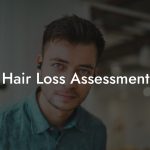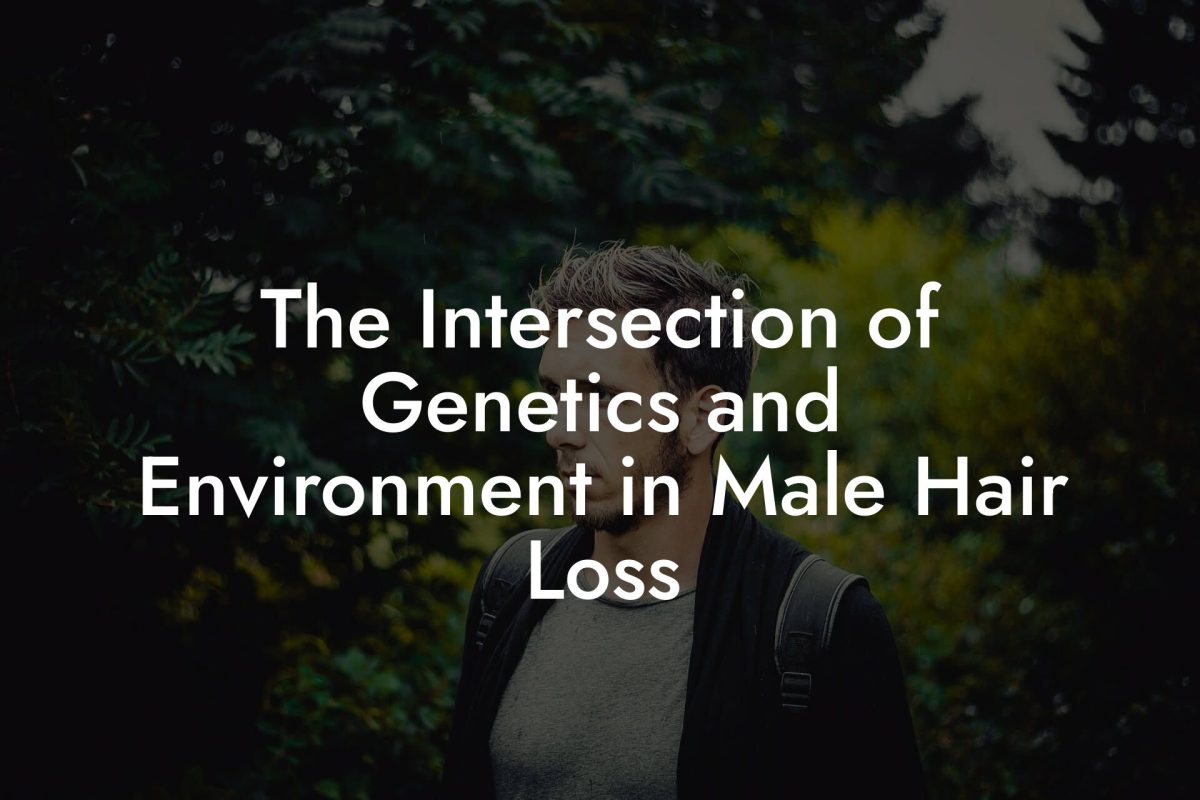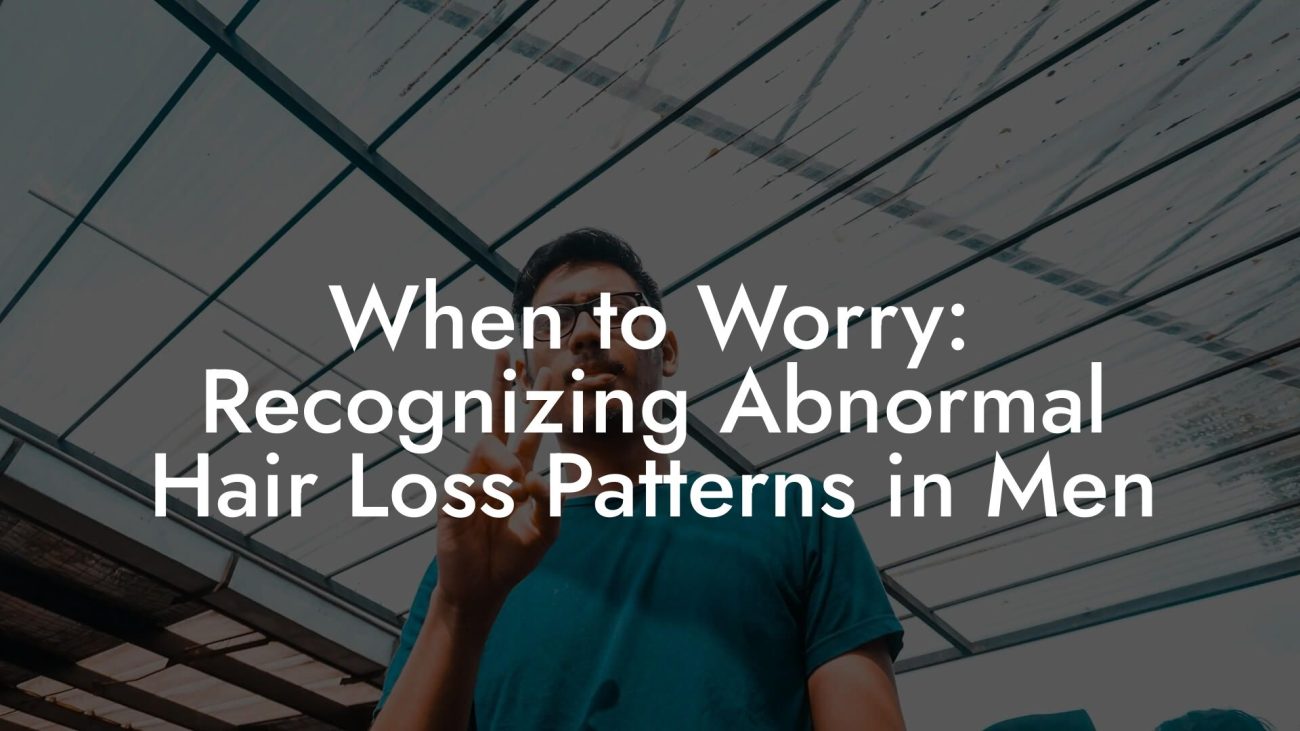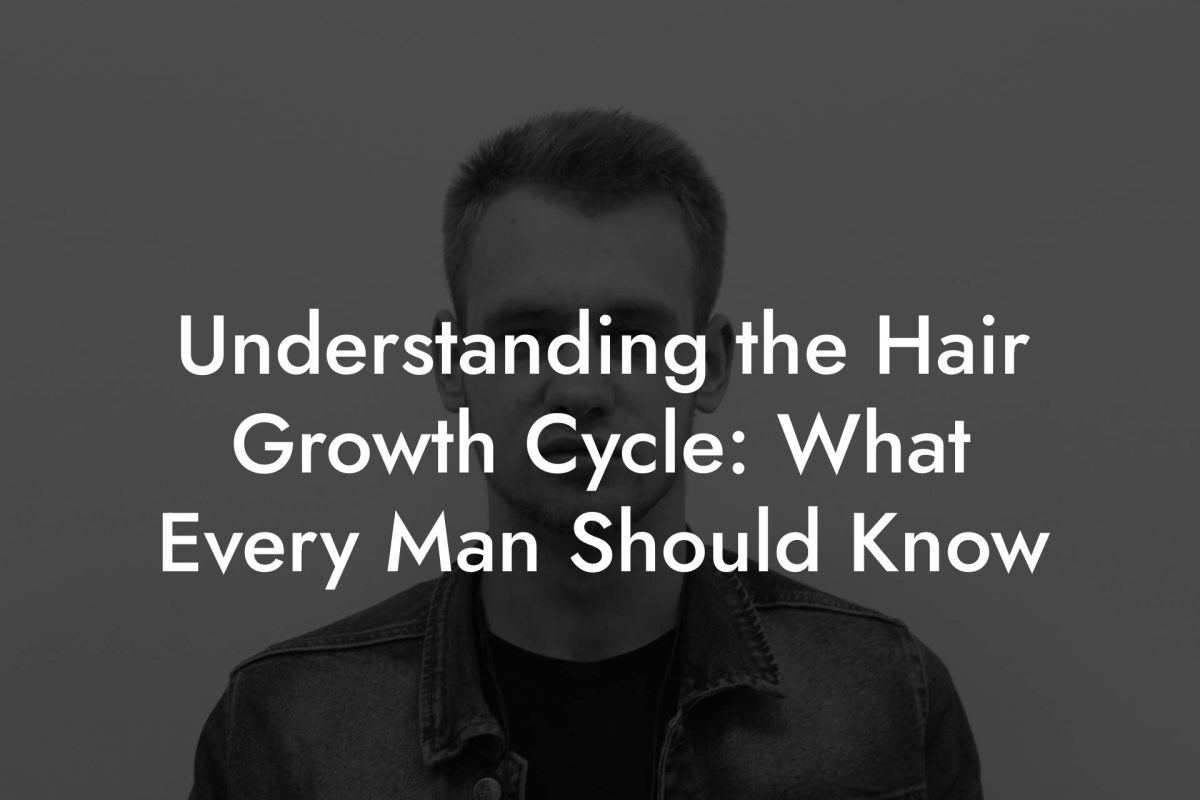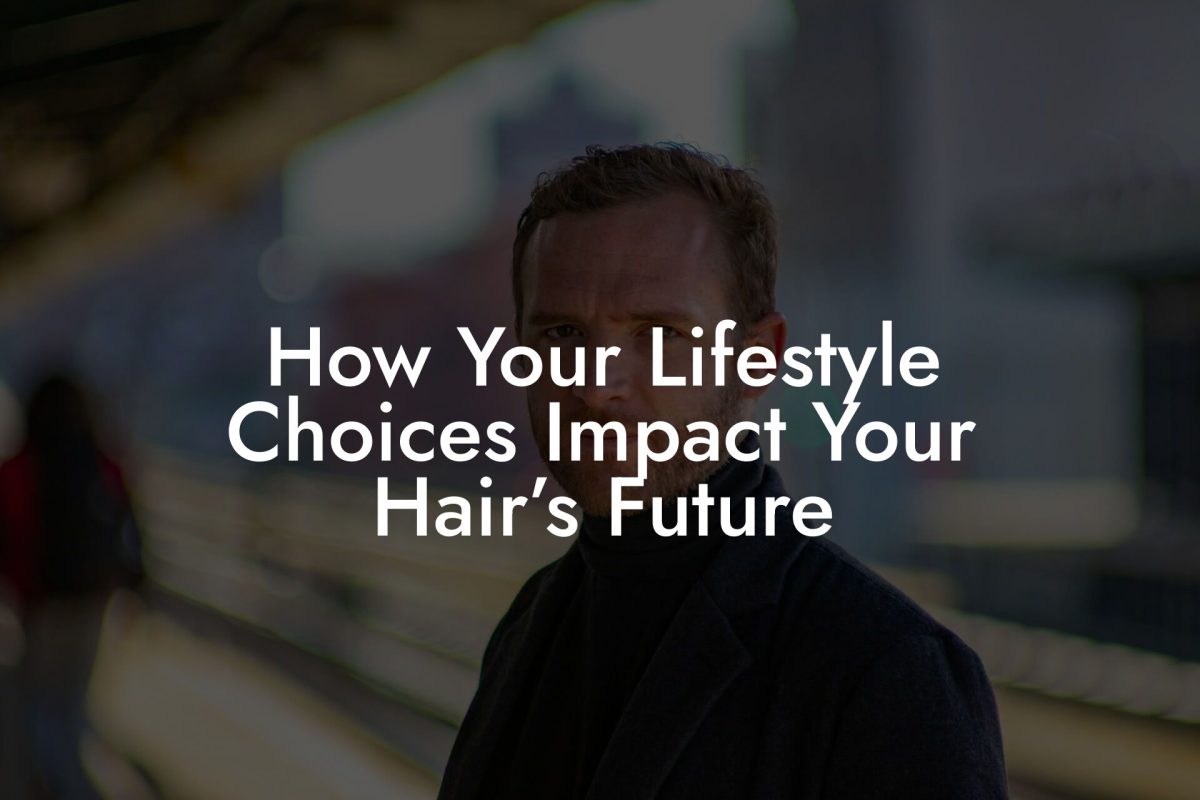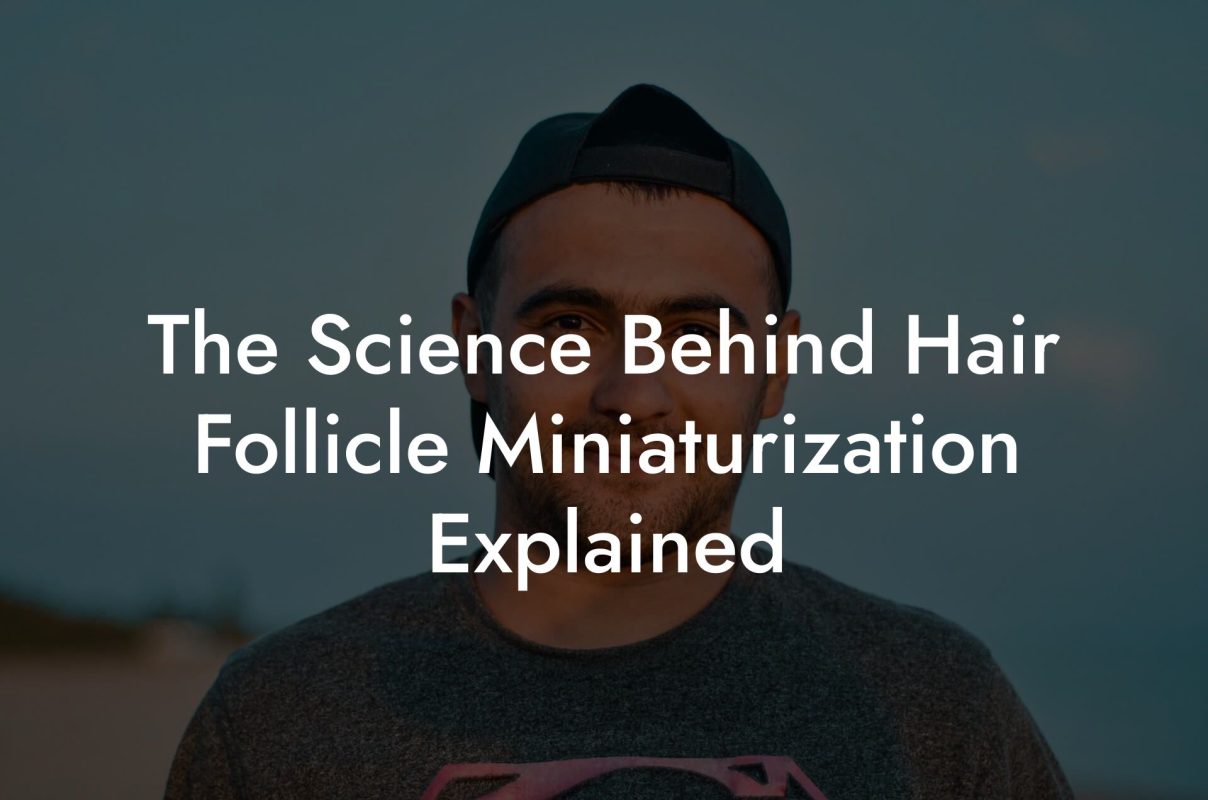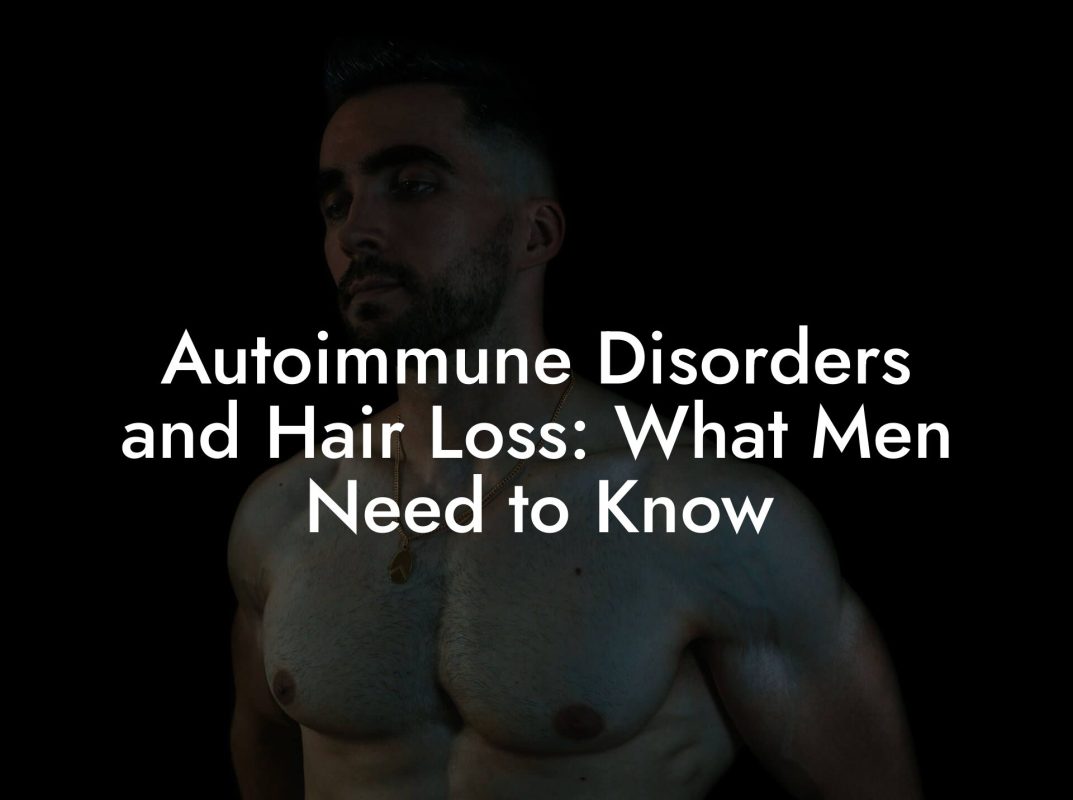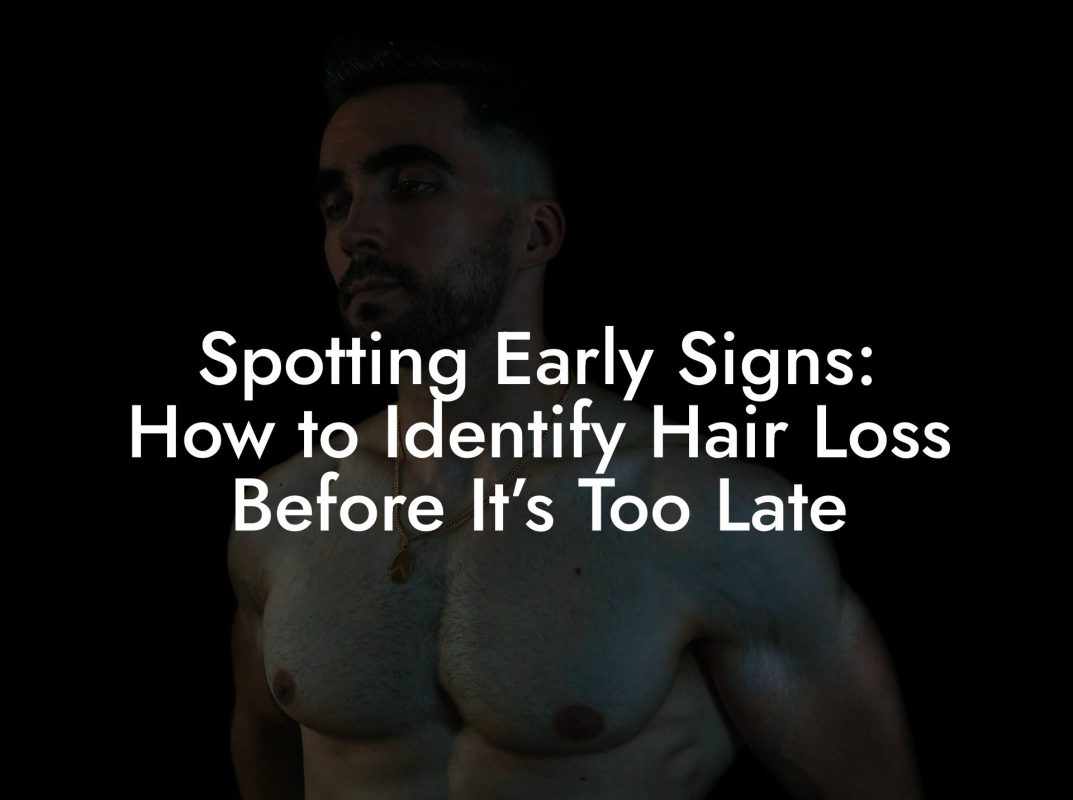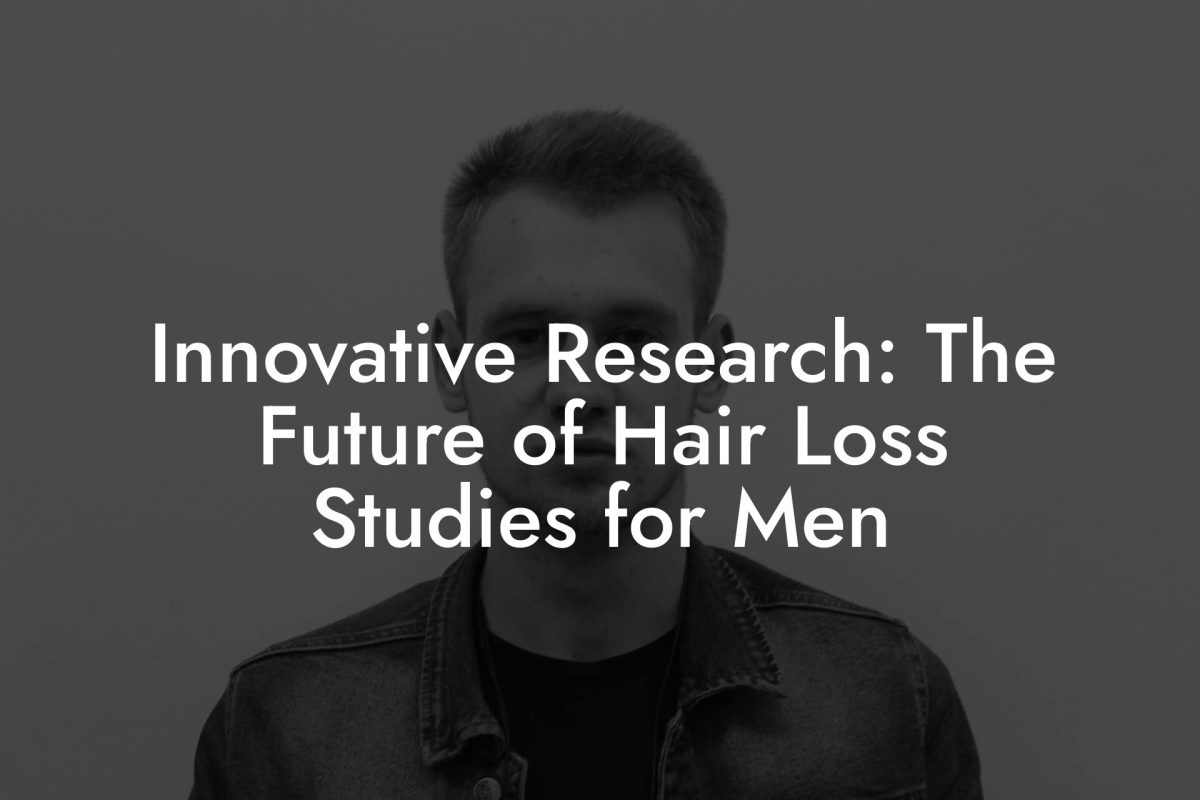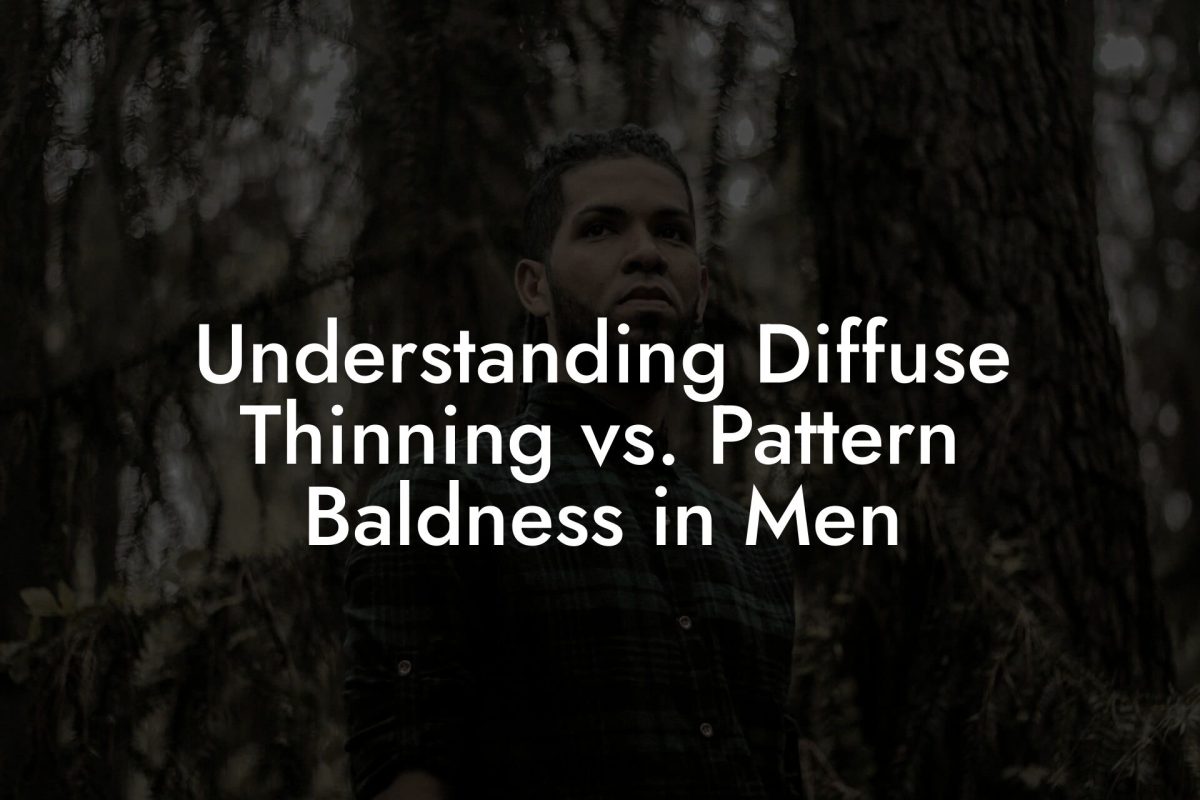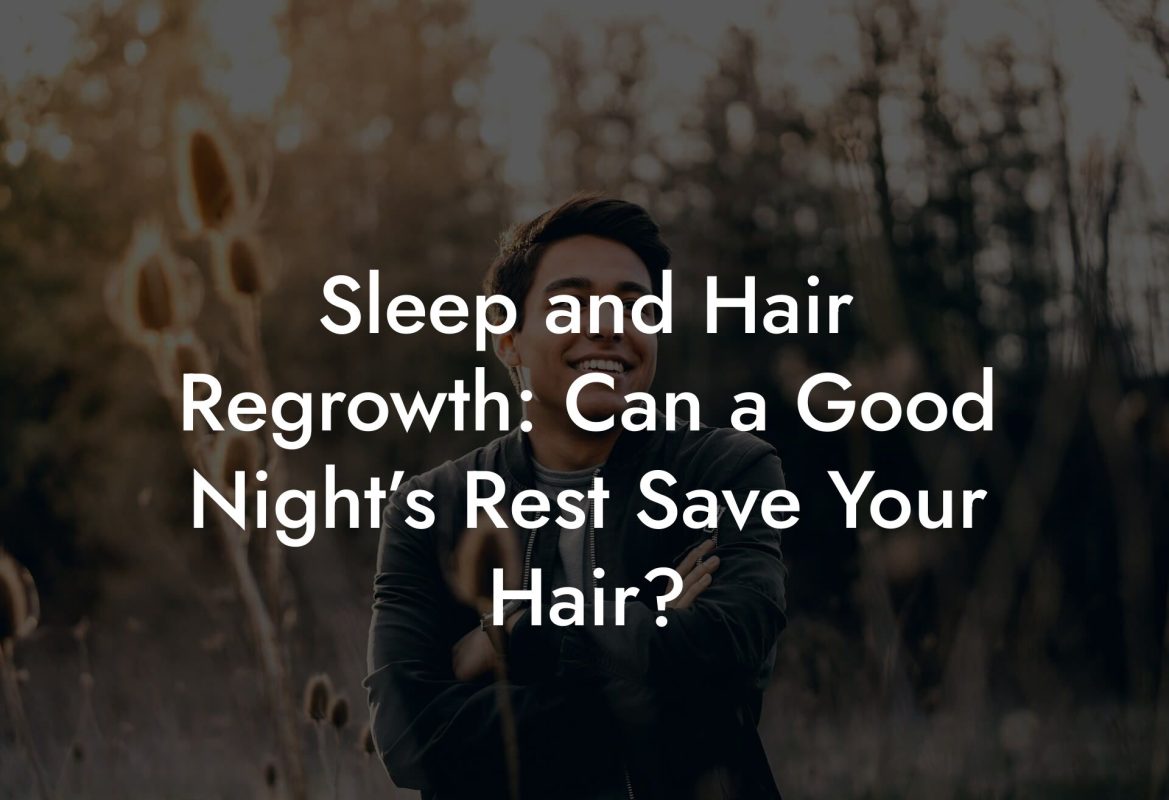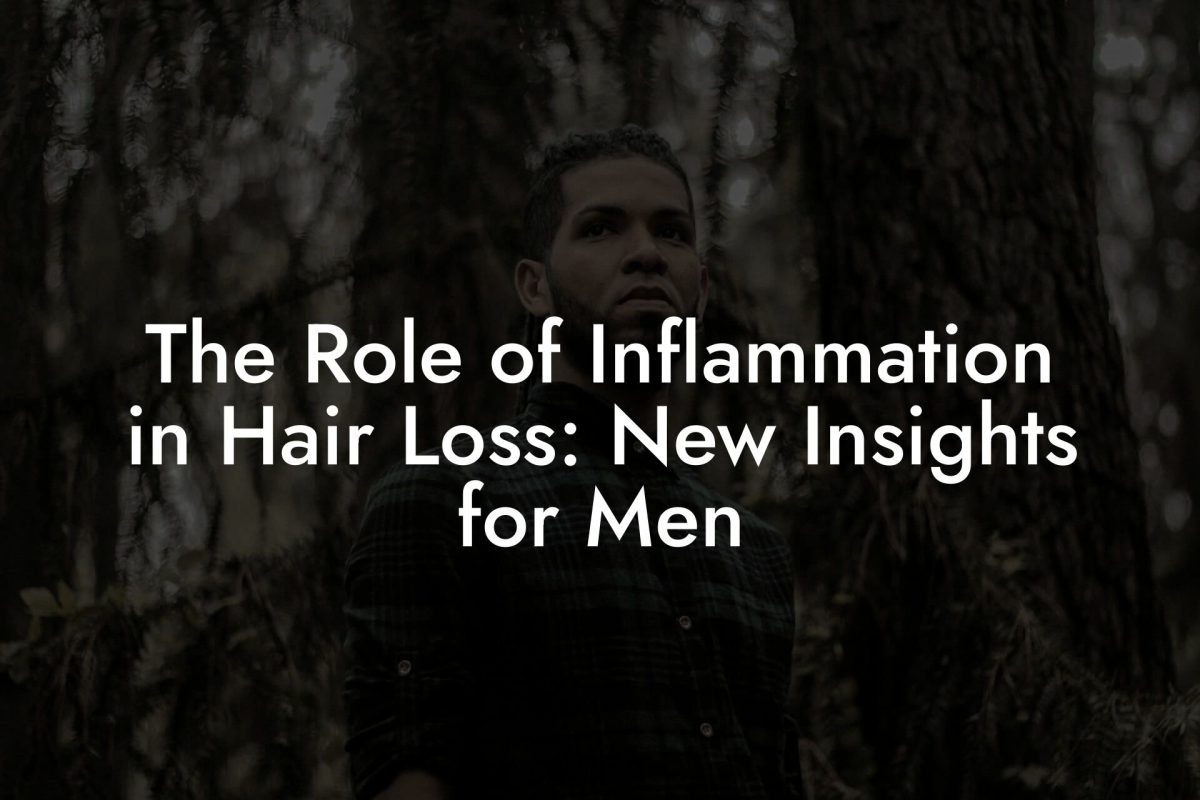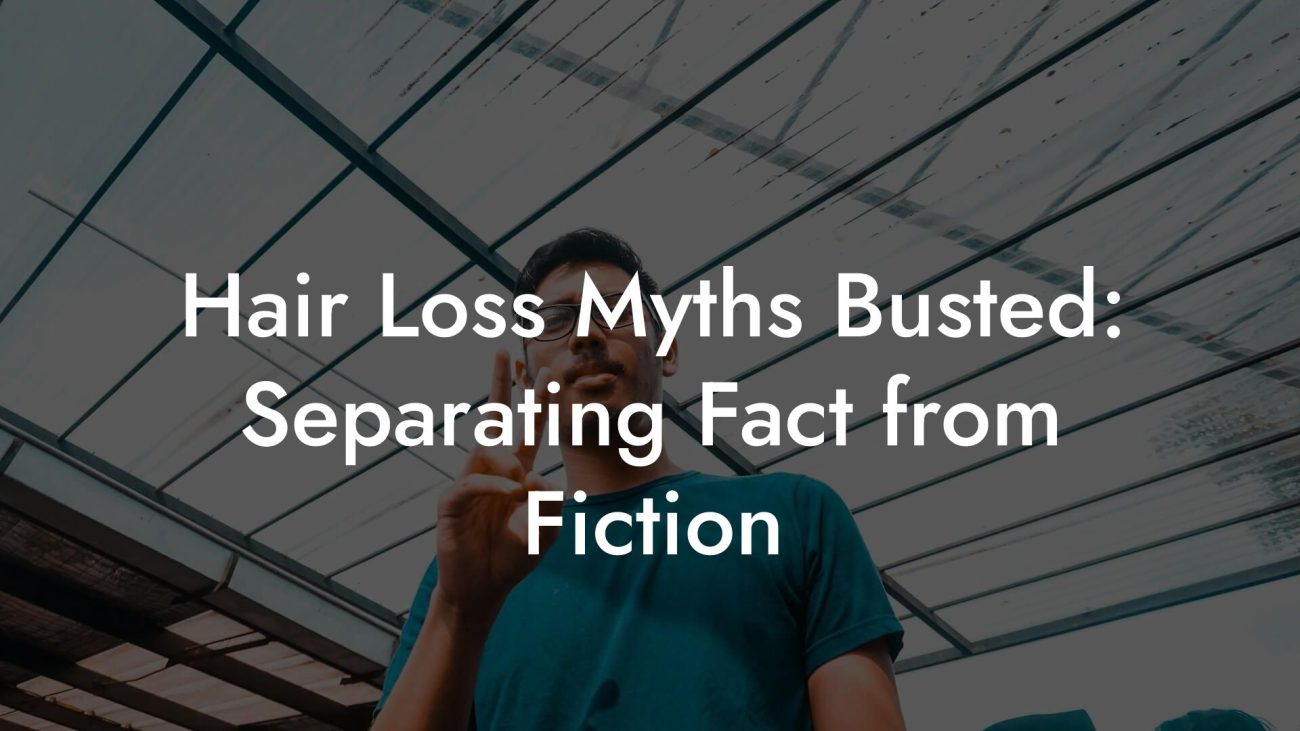Hair Loss Library
How Smoking and Alcohol Affect Men’s Hair: A Deep Dive
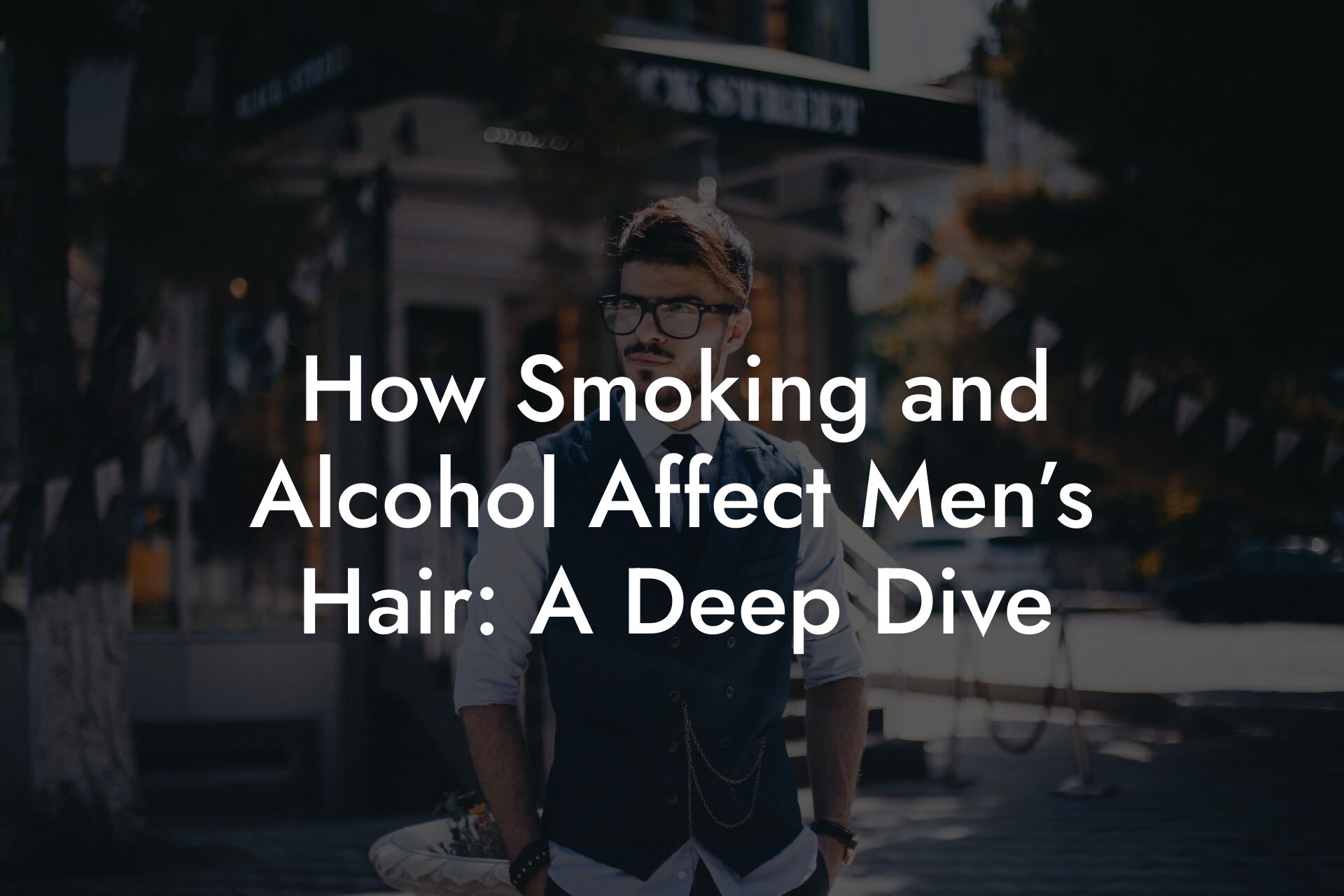
Ever wondered why your mane seems to be playing hide-and-seek with you while you’re juggling your lattes and nightlife? If you’re a guy trying to keep your hair game strong, strap in for a deep dive into how smoking and alcohol might be the uninvited guests that are messing with your luscious locks. Welcome to Mane Matrix’s no-nonsense guide on how these two lifestyle culprits affect men’s hair, with a humorous twist, relatable insights, and practical tips to help you take back control.
Rolling Up the Facts: How Smoking and Alcohol Impact Your Hair
Let’s face it: modern life is full of indulgences, and sometimes our habits can get in the way of optimal hair health. Whether you're lighting up a cigarette to unwind after a long day or enjoying a few drinks to celebrate the weekend, both smoking and alcohol intake have been linked to a decline in hair vitality. This isn't just an urban myth—science backs up the bad news. In this section, we’re going to explore how these behaviors disrupt your hair’s natural growth cycle, drainage, and overall health.
From stunting hair growth to triggering premature hair loss, the chemicals in tobacco and the toxins from alcohol can wreak havoc on your scalp. But before you start panicking or booking a one-way ticket out of your favorite bar, know that understanding the details can empower you to make informed choices and protect what you’ve got.
The Chemistry of Damage: How Smoking Affects Your Hair
Smoking isn’t just harmful to your lungs and heart—it gets under your scalp’s skin too. When you inhale cigarette smoke, you’re not only taking in nicotine; you’re also exposing your body to a mix of harmful chemicals like carbon monoxide and free radicals. These toxic compounds decrease blood flow, which is crucial for delivering oxygen and nutrients to your hair follicles.
Think of your follicles as tiny factories where healthy hair is produced. When the blood supply dwindles, these factories operate on low power, leading to thinner, weaker strands and even early hair loss. To make matters worse, smoking speeds up the aging process by breaking down collagen and elastin, proteins essential for maintaining the structural integrity of your hair. This results in dull, lifeless hair that’s more likely to fall out—kind of like showing up to a party with an expired library card.
Key Cellular Impacts
At a microscopic level, smoking disrupts the hair growth cycle in several ways:
- Nutrient Deprivation: Reduced blood flow means that fewer nutrients reach the hair roots, resulting in a lackluster growth phase.
- Oxidative Stress: Free radicals from cigarette smoke cause oxidative damage, attacking the cells responsible for healthy hair production.
- Inflammation: The chemical irritants in smoke trigger low-level chronic inflammation in the scalp, contributing to follicle degeneration over time.
In a nutshell, every puff you take is like sending your hair follicles on a no-vacation, high-stress work schedule with no overtime benefits.
Alcohol and Your Hair: More Than Just a Party Pooper
Now, let’s pour a glass and talk about alcohol. Sure, a drink or two can help you relax, but excessive alcohol consumption may leave your hair feeling as parched as your sense of humor after midnight. Alcohol dehydrates your body and depletes essential nutrients that your hair craves to stay healthy and strong.
Not only does alcohol consumption cause dehydration, but it also affects hormone levels, including the ones that govern hair growth. It's a double whammy! Dehydrated hair is fragile and more prone to breakage, while hormonal imbalances may accelerate hair thinning. Additionally, alcohol can reduce the production of selenium and zinc—minerals responsible for winterizing your hair’s defenses against damage.
Nutritional Fallout
Drinking excessively can also mess with your nutrition. When your liver is busy detoxing from alcohol, it struggles to process the vitamins and minerals needed to promote healthy hair. Think of it as having the ultimate roadblock on your nutrient highway. Here are some of the key issues:
- Vitamin Deficiencies: Alcohol impairs the absorption of nutrients like vitamin A, vitamin E, and B vitamins, all crucial for robust hair growth.
- Imbalance in Hormones: Alcohol can disrupt your endocrine system, leading to imbalances that affect hair development and the normal cycle of hair growth.
- Elevated Cortisol Levels: Stress hormones like cortisol increase with excessive drinking, and high cortisol is notorious for contributing to hair loss.
So, while that glass of whiskey may seem like a remedy after a long day, over time it might just be plotting against your hair, turning what used to be a vibrant head of hair into a sparse reminder of decades past.
When Smoking and Drinking Team Up: The Synergistic Effect on Hair Loss
Imagine if your two least favorite high school teachers decided to team up and give you a pop quiz—tough, right? When smoking and heavy drinking go hand in hand, their negative impacts on your hair are not just additive, they’re synergistic. In other words, the combined effects can be even more devastating.
The damaging free radicals from cigarettes, coupled with the nutrient depletion and hormone disruptions from alcohol, create a hostile environment for your hair follicles. This dynamic duo accelerates aging, impairs hair regeneration, and increases the chances of scalp inflammation.
If you're living that nightlife and smoke-filled party lifestyle, know that your hair is caught in the crossfire. The stress your body endures from these habits can send your hair follicles into overdrive one minute and shut them down the next.
The Underlying Mechanisms: Science Behind the Scenes
Let’s break down the science behind how these lifestyle choices actually lead to hair loss in men. When it comes to hair growth, timing is everything. Hair follicles operate on a cycle consisting of the anagen (growth), catagen (transitional), and telogen (resting) phases. Any disruption in this cycle can precipitate premature hair shedding and thinning.
Smoking introduces compounds that shorten the anagen phase, meaning your hair grows for a shorter period. This means fewer hairs are produced, and the ones that do grow are often weaker and thinner. Alcohol, in its turn, can induce a similar shift in the anagen phase by interfering with vital proteins and hormones that are part of the hair growth process.
Role of Inflammation and Oxidative Stress
Both smoking and heavy drinking exacerbate oxidative stress, creating an overload of free radicals that damage the hair follicle cells. When these cells are bombarded by constant oxidative damage, they lose their ability to function optimally. Moreover, chronic inflammation due to these habits can lead to fibrosis or scarring within the scalp, permanently damaging hair follicles and preventing regrowth.
Research shows that men who smoke and drink heavily are more likely to exhibit signs of androgenetic alopecia (male pattern baldness) earlier than those who maintain healthier lifestyles. The combination of poor blood circulation, hormonal imbalances, and nutrient shortages sets the stage for accelerated hair aging.
Your Lifestyle, Your Choice: Social and Psychological Impacts
It’s not just about the physical damage—there's a psychological component that’s just as important. Hair loss can hit your self-esteem hard, often leaving you feeling less confident and more self-conscious. For many millennials and Gen Z men, hair isn’t just an aesthetic asset; it’s a part of your identity. Think of it as the ultimate accessory that complements your vibe.
When you’re caught in the downward spiral of poor habits like smoking and excessive drinking, it’s not only your physical health that suffers but also your mental health. Low confidence, stress, and even mild depression can stem from noticing a noticeable thinning of the once-thick mane you sported with pride.
The irony is that while some may use smoking and drinking as a way to cope with stress or life’s challenges, these habits can actually intensify the stresses of hair loss. It’s a vicious cycle—poor lifestyle choices lead to hair loss, which in turn chips away at your self-image, possibly leading to even more unhealthy behaviors.
Real Talk: Case Studies and Personal Stories
Let’s get real with some hypothetical case studies that might sound familiar:
Case Study 1: Jake’s Wake-Up Call
Jake, a 32-year-old digital marketer with a love for both craft beer and the occasional cigarette break, began noticing increased hair shedding in his early 30s. Once boasting a full head of hair, he now saw clumps of strands in his shower—an unwelcome surprise he never saw coming. After consulting experts at Mane Matrix, Jake learned that his cocktail of smoking and drinking was sabotaging his hair growth cycle. With this realization, he started cutting back, focused on a nutrient-rich diet, and integrated scalp massages and targeted supplements into his routine. While the journey wasn’t an instant fix, Jake’s hair loss progression slowed significantly, and he embraced new grooming routines that restored not just his hair’s health, but also his newfound confidence.
Case Study 2: Marcus’s Transformation
Marcus had always believed that his weekend hangouts and the occasional smoke were just harmless rituals, an integral part of his “cool” guy persona. However, as he hit his late 20s, he began noticing thinning patches along his crown. After a thorough evaluation, it turned out that his lifestyle habits were directly impacting his hair’s strength and density. Motivated by the desire to save his hair and health, Marcus committed to a radical lifestyle overhaul—quitting smoking, limiting his alcohol intake, and revamping his diet with foods rich in omega-3s and antioxidants. Over the course of a year, Marcus saw noticeable improvements. While he wasn’t able to reverse all the damage, his journey underscored the power of making conscious lifestyle changes.
Case Study 3: Ryan’s Road to Reclamation
Ryan, a charismatic entrepreneur, was used to burning the midnight oil with a cocktail in hand. His busy schedule, peppered with networking events and business trips, left little room for sleep and even less for healthy habits. Eventually, Ryan noticed his hairline receding faster than his business growth. This spurred him to seek advice from a hair loss expert at Mane Matrix. Through a carefully crafted plan that included reducing his alcohol consumption, quitting smoking, and incorporating stress management techniques, Ryan managed to stabilize his hair loss. His experience serves as a rallying cry for any busy professional: small changes can lead to significant improvements.
These stories highlight that while genetics do play a role in hair loss, lifestyle choices can either accelerate or help mitigate the process. By taking control and making smarter choices, you can write your own comeback story—even if it means swapping one too many smoky nights for an early morning run.
Understanding the Broader Picture: Environmental and Genetic Factors
It’s important to remember that smoking and alcohol are only part of the hair loss equation. Environmental factors, such as pollution, stress, and even the quality of water you shower with, can contribute to thinning hair. Genetics, of course, lay the groundwork for your hair’s potential thickness and resilience, but your lifestyle choices can either enhance or hinder that potential.
For instance, even if you have a strong genetic predisposition for thick hair, an environment filled with toxins—and habits that exacerbate exposure to those toxins—may still lead to premature hair thinning. Knowing this can empower you to adopt a more comprehensive approach to hair health that doesn’t just blame your family tree but also what you put into your body.
Combining the best practices in lifestyle management, nutrition, and targeted hair care can bolster your hair’s natural defense mechanisms. Think of it as assembling the ultimate hair care squad, where each member—from antioxidants to biotin supplements—plays a vital role in keeping your hair strong and fabulous.
Prevention and Reversal: Empowering Your Hair Health With Smart Choices
Now that we’ve dissected the not-so-pretty facts, it’s time to talk about what you can do to protect and possibly reverse some of the damage. While quitting smoking cold turkey and abdicating all fun social drinking might not be realistic (or fun), you can make smarter choices that have a positive impact on your hair.
Cutting Down on Smoking and Alcohol
The most effective strategy to combat hair damage is reducing your exposure to the harmful effects of smoking and alcohol. If quitting isn’t on the cards just yet, try limiting your intake gradually. Consult with a healthcare provider about nicotine replacement therapy or moderate drinking guidelines to set achievable goals.
Nutritional Support and Hydration
Give your hair the nutritional boost it needs by incorporating foods rich in antioxidants, vitamins, and minerals into your diet. Think of superfoods like spinach, berries, nuts, and fatty fish—nature’s way of saying, “I got your back (and your hair)!” Staying hydrated is equally critical, as water helps maintain the moisture balance in your scalp and hair shafts.
Scalp Care and Specialized Treatments
Regular scalp massages, using essential oils, and even professional treatments like PRP (platelet-rich plasma) therapy can stimulate blood flow to the scalp, encouraging healthier hair growth. Topical treatments containing ingredients like minoxidil can also provide a much-needed boost, as part of a well-rounded hair care regimen.
Balancing Your Hormones and Reducing Stress
Chronic stress can cause hair loss by disrupting the hormone balance, so integrating stress management techniques such as meditation, yoga, or even a digital detox might pay off in spades. Lower cortisol levels not only do wonders for your overall health but also support your hair’s natural growth cycle.
By taking proactive steps in these areas, you can create a supportive environment that potentially slows down or even reverses some of the hair loss effects associated with smoking and drinking.
Building a Daily Routine for Optimal Hair Health
Transforming your hair health might seem like a monumental task, but it all starts with a daily routine that emphasizes consistency and balance. Here’s a blueprint to get you started:
Morning: Kickstart Your Day With Nutrients
Begin your day with a nutrient-rich breakfast that includes proteins, healthy fats, and vibrant fruits or vegetables. Consider a green smoothie packed with spinach, berries, and a scoop of protein powder as a delicious way to feed your hair the vitamins it needs.
Midday: Hydrate and Reset
Keep a reusable water bottle by your side and aim for steady hydration throughout the day. Switching to water-rich snacks, like cucumber slices or watermelon chunks, can help maintain the moisture balance for both your skin and scalp.
Evening: Unwind and Care for Your Scalp
Wind down your day with some stress relief techniques—whether it’s a brisk walk, mindfulness meditation, or simply putting on your favorite tunes. Integrate a gentle scalp massage into your evening routine; it can help improve circulation and relax the muscles of your head.
Night: Consistency Is Key
A good night’s sleep is essential for recovery and regeneration. Stick to a consistent sleep schedule to allow your body—and your hair—to repair itself. Use this time to embrace self-care routines that bolster your overall well-being.
Over time, these daily habits can yield significant dividends in your hair’s health, boosting resilience against external aggressors like smoking and alcohol.
Resources and Community Support: Your Next Steps
Facing hair loss can be daunting, but you’re not alone in this journey. At Mane Matrix, we believe that informed decisions and community support are your best allies. Whether you’re looking for personalized advice, in-depth analyses, or a community of men who understand the ups and downs of hair health, there’s a resource available to you.
Consider joining online forums or social media groups dedicated to men’s hair loss where experts share tips, personal stories, and the latest research findings. Many of these communities organize live Q&A sessions, webinars, and support groups where you can learn, share, and grow alongside others facing similar challenges.
Additionally, keeping abreast of the latest trends in hair care technology—such as laser therapy devices, dietary supplements, and innovative hair growth treatments—can equip you with the knowledge to make proactive decisions about your hair health. Remember, every small change you make today can pave the way for a healthier, more vibrant head of hair tomorrow.
Debunking Myths: Separating Fact From Fiction
Along your hair loss journey, you’re bound to come across a myriad of myths that promise a miracle cure for thinning hair with zero effort. Let’s debunk some of the most common misconceptions related to smoking, alcohol, and hair loss:
- Myth 1: “I can outdrink the effects of alcohol on my hair.”
Fact: No amount of “compensatory” behavior can completely reverse the damage heavy drinking causes. It’s all about moderation and balance. - Myth 2: “Switching to cigars or vaping is a safe alternative.”
Fact: While you might sidestep some of the chemicals in cigarettes, many harmful substances remain. The bottom line is that any form of tobacco use can impair circulation and harm hair follicles. - Myth 3: “Hair loss is entirely genetic, so my habits don’t matter.”
Fact: Genetics set the stage, but your lifestyle choices—especially smoking and drinking—can tip the scales towards early or accelerated hair loss.
Being informed and critical of these myths empowers you to make choices that prioritize long-term hair health over short-term indulgence.
Connecting the Dots: A Call to Action for Your Hair Health
Understanding how smoking and alcohol affect your hair isn’t meant to scare you—it’s a wake-up call. Every choice you make has rippling effects on your body's overall health and, yes, especially on your hair. With this deep dive, we hope you’ve gained clarity on the complex relationship between your habits and your hair’s condition.
It’s time to decide what kind of hair story you want to write. Will you continue down the path of neglect, or will you take proactive steps to nourish and protect your mane? The decision, after all, lies in your hands, and every small habitual change—from reducing that cigarette or drink to adopting a holistic hair care routine—has the power to make a difference.
Remember, your journey to healthier hair is unique and personal, and every effort counts. Embrace the change, and let each mindful decision pave the way to a more vibrant, confident you.
Frequently Asked Questions About Smoking, Alcohol, and Men’s Hair Health
Here are some of the most common questions we hear about the impact of smoking and alcohol on men’s hair, along with practical answers to help you navigate this complex issue.
1. How does smoking specifically contribute to hair loss?
Smoking introduces harmful chemicals and free radicals that reduce blood flow to your scalp and damage hair follicles. This results in weaker hair growth, premature graying, and ultimately, increased hair shedding.
2. Can moderate alcohol consumption harm my hair?
While moderate drinking might not cause immediate hair loss, chronic or excessive alcohol consumption dehydrates your body, disrupts your hormone balance, and depletes essential nutrients—all factors that can contribute to gradual hair thinning over time.
3. Is it possible for hair to recover after quitting smoking and reducing alcohol intake?
Yes, many men report improvements in hair strength and reduced shedding after quitting smoking and moderating drinking. However, recovery can be gradual and may also require supportive nutritional and hair care measures.
4. What nutrients are most beneficial for hair health?
Vitamins such as A, C, E, and B-complex (especially biotin), along with minerals like zinc and iron, are crucial for hair strength and growth. Omega-3 fatty acids found in fish and certain seeds also help maintain scalp health.
5. Can stress-induced by lifestyle habits accelerate hair loss?
Absolutely. Chronic stress, which can be exacerbated by unhealthy habits, increases cortisol levels that damage hair follicles and disrupt the natural hair growth cycle.
6. Are there any topical treatments to combat the effects of smoking and alcohol on hair?
Topical treatments such as minoxidil, along with nutrient-rich serums and scalp massage therapies, can help stimulate hair growth and improve scalp health. However, they work best when used in conjunction with healthier lifestyle choices.
Your Mane Mission: The Road to Better Hair Health
Your hair is more than just strands of keratin—it’s a reflection of your lifestyle, habits, and the everyday choices you make. By understanding how smoking and alcohol affect your hair, you're taking the first step toward reclaiming control over your health and self-image.
Whether you opt to cut back gradually or dive into a full-blown lifestyle overhaul, remember that every incremental change can reinvigorate your hair follicles and boost your confidence. Pair smarter lifestyle choices with robust hair care routines, balanced nutrition, adequate hydration, and a pinch of self-love, and you’ll set the stage for not just healthier hair, but a healthier you.
So, why not kick off your mane mission today? Start by reassessing your daily habits, tapping into expert advice from communities like Mane Matrix, and remember—a little humor and a lot of persistence go a long way in turning things around. Your future self (and your hair) will thank you.
Embrace the journey, celebrate the small wins, and step confidently into a life where your hair and health are in perfect sync. The power to transform your hair health is right in your hands—now go make those changes!
If you loved this article... Dive deeper into the world of mens hair loss with our most popular sections. If there is anything you think is missing or anything you would love for us to write about, just give us a shout.
Why Am I Losing Hair? Unpacking the Science Behind Men’s Hair Loss
The Ultimate Guide to Male Pattern Baldness: Causes and Clues
Hormones & Hair: How Testosterone Impacts Hair Loss in Men
Genetics vs. Lifestyle: What’s Really Causing Your Hair Loss?
Stress and Strands: Exploring the Link Between Anxiety and Hair Loss
Decoding Androgenetic Alopecia: What Every Man Needs to Know
How Aging Affects Your Hair: Understanding the Natural Process
The Role of Diet in Hair Health: Nutrients That Prevent Hair Loss
Environmental Factors: How Pollution and Toxins Trigger Hair Loss
Medical Conditions and Hair Loss: What’s Normal and What’s Not?
The Impact of Medications on Men’s Hair: What You Should Ask Your Doctor
Unraveling Scalp Health: Signs Your Scalp Needs Extra Care
Hair Loss Myths Busted: Separating Fact from Fiction
The Role of Inflammation in Hair Loss: New Insights for Men
Sleep and Hair Regrowth: Can a Good Night’s Rest Save Your Hair?
How Smoking and Alcohol Affect Men’s Hair: A Deep Dive
Understanding Diffuse Thinning vs. Pattern Baldness in Men
Innovative Research: The Future of Hair Loss Studies for Men
Spotting Early Signs: How to Identify Hair Loss Before It’s Too Late
Autoimmune Disorders and Hair Loss: What Men Need to Know
The Science Behind Hair Follicle Miniaturization Explained
How Your Lifestyle Choices Impact Your Hair’s Future
Understanding the Hair Growth Cycle: What Every Man Should Know
When to Worry: Recognizing Abnormal Hair Loss Patterns in Men
The Intersection of Genetics and Environment in Male Hair Loss
